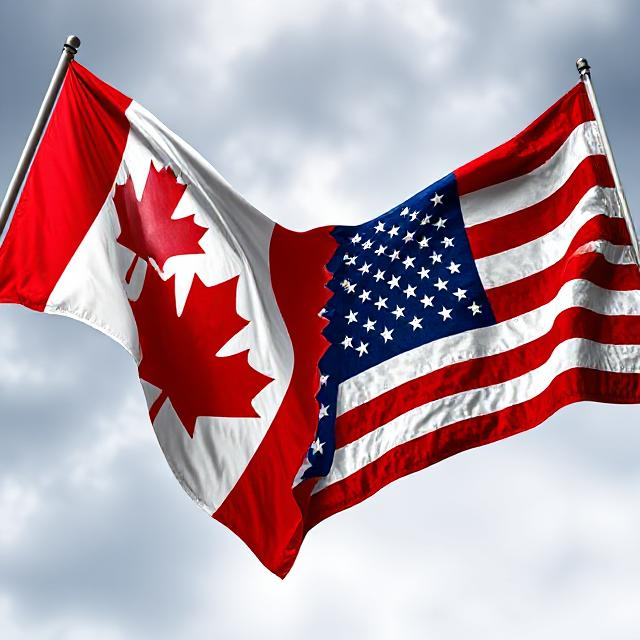Visa Stock Analysis: Is Visa a Strong Opportunity Ahead of Q4 Earnings?
$325.48
28 Jan 2026, 19:25


US Increases Tariffs on Canadian Steel and Aluminum
US President Donald Trump has announced a significant increase in tariffs on Canadian steel and aluminum imports, raising levies to 50%. This decision escalates the ongoing US-Canada trade war, impacting businesses and economies on both sides.
Trump stated that the tariff hike was in direct response to Ontario imposing a 25% surcharge on electricity exports to northern US states. He warned that if Canada did not drop tariffs on agricultural products, he would raise taxes on the Canadian car industry, a move he claimed would "permanently shut down the automobile manufacturing business in Canada."
Ontario Premier Doug Ford strongly opposed the tariffs, declaring, "Until the threat of tariffs is gone for good, we won’t back down."
In a post on X (formerly Twitter), Ford accused Trump of launching "an unprovoked trade and tariff war with America’s closest friend and ally."
Ford also warned that if the US escalated the situation further, Ontario might cut off electricity exports entirely.
Tariffs are taxes on imported goods, paid by companies that bring foreign products into a country. However, these businesses often pass the added costs to consumers, leading to higher prices on goods.
Trump announced on Truth Social that the new tariffs would take effect on Wednesday morning. He also threatened to declare "a national emergency on electricity" in affected US states.
Additionally, he claimed that Canada depends on the US for military protection and reiterated his desire for Canada to become the 51st US state. He suggested that if Canada were to join the US, "all tariffs and trade barriers would disappear."
However, Canadian Prime Minister-designate Mark Carney firmly rejected this idea, stating, "Canada will never be part of America in any way, shape, or form."
The announcement has led to market volatility:
The S&P 500 index dropped another 0.5% on Tuesday, following a 2.7% decline on Monday, marking its biggest one-day drop since December.
European markets also suffered losses, with the FTSE 100, CAC 40, and DAX indices declining further after Trump's statement.
Monday’s market downturn started after Trump suggested the US economy was in a "transition", sparking fears of a potential recession. Many investors worry that rising tariffs could drive up inflation and harm businesses.
Trump’s tariff policies have already started impacting American businesses.
Jason Goldstein, founder of Icarus Brewing in New Jersey, said the uncertainty has affected his company. Suppliers have warned that rising grain and aluminum prices could soon hit his operations.
To cope with the instability, Goldstein has stockpiled a month’s supply of cans and postponed new purchases.
"It's a worrying time for us," he told the BBC, adding that he now monitors the news daily to anticipate industry changes.
Russ Mould, investment director at AJ Bell, noted that while some investors view US stocks as a buying opportunity, Trump’s trade policies are already hurting consumer confidence and business stability.
He pointed out that investors may either bet on a US market rebound or shift their funds to European markets, which currently appear to be more stable and affordable.
As tensions continue to rise, the economic impact of Trump’s tariffs on Canada remains uncertain. In the coming weeks, global markets and business leaders will closely watch whether trade negotiations ease tensions—or if the dispute escalates further, causing even greater economic disruptions.
Source: bbc.co.uk, ChatGpt